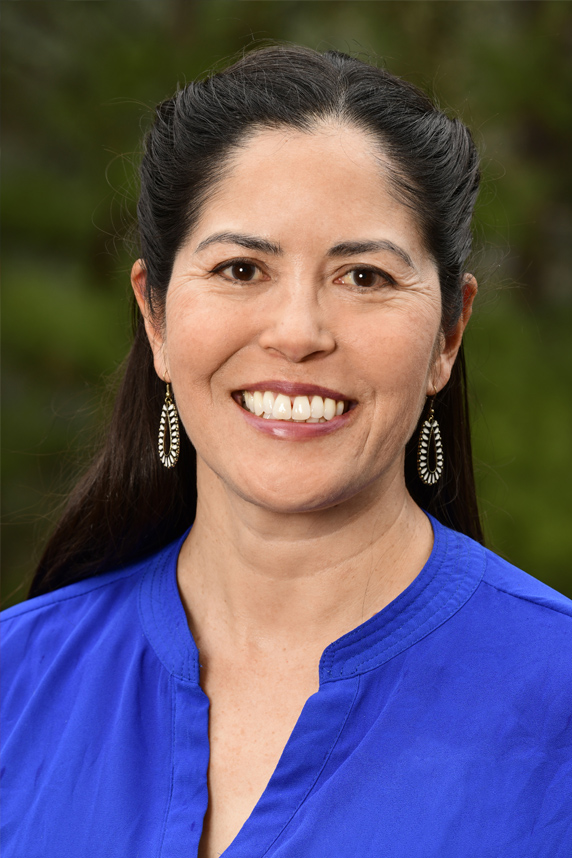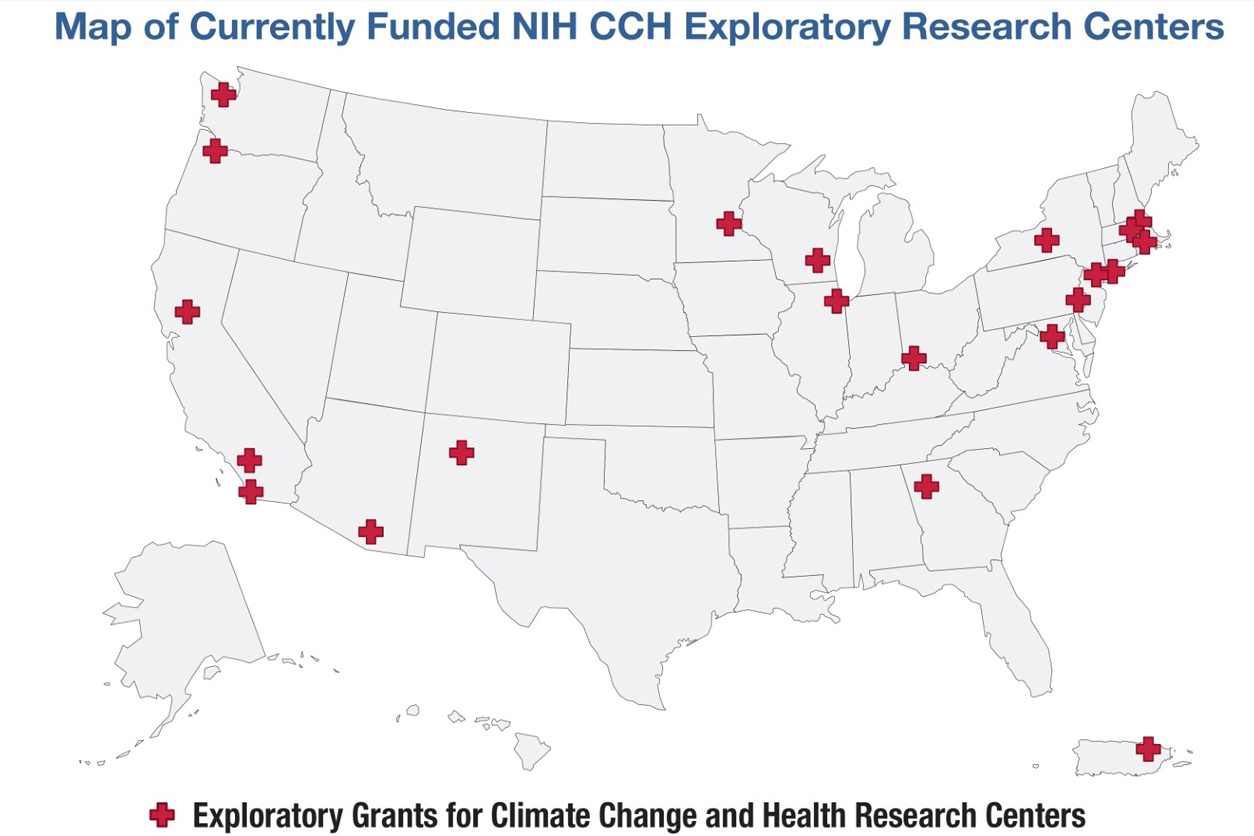The National Institutes of Health (NIH) Climate Change and Health Initiative (CCHI) funded 16 new exploratory research centers in September, adding to the five centers awarded funding last year. The 21 centers will support the development of transdisciplinary, innovative research into the complex impacts of climate change on health.
The awards stem from the Exploratory Grants for Climate Change and Health Research Center Development program, which provides three years of funding to research groups that are poised to conduct groundbreaking research but need additional support to build the necessary infrastructure.
“The Exploratory Research Center program is one of the most significant pillars of the NIH CCHI,” said NIEHS Director Rick Woychik, Ph.D. “The 21 research centers will serve as a catalyst for solutions-focused research into this complex and pressing global health challenge.”
Promoting climate resiliency
The exploratory research centers will build teams dedicated to exploring various approaches to protect health and build resiliency at the individual, community, national, and global levels. The centers will also share their experiences and discuss opportunities to translate their findings with the larger research community through the NIH CCHI’s CAFÉ Research Coordinating Center.

Each exploratory research center has a unique scope of activities designed to investigate various aspects of climate change and health, with many projects applying a lens of health equity and social justice to the research.
Collaborating directly with communities to develop projects and research agendas, the centers will examine climate-related vulnerabilities within the structural and social context of communities disproportionately affected by climate change. This approach will generate data that strengthens the climate and health research evidence base, promote climate resiliency, and build research infrastructure.
“By expanding transdisciplinary connections and expertise, and strengthening engagement with communities, the research teams are equipped to apply the best science toward community-relevant and solutions-oriented research questions in climate and health,” said Ashlinn Quinn, Ph.D., the NIEHS program officer for climate change and health.
Exploratory research center locations

The 21 centers named below will be housed at the following universities.
- Brown University: CHAIRS-C: Climate, Health, and Aging Innovation and Research Solutions for Communities.
- Columbia University, Health Sciences: Climate and Health: Action and Research for Transformational Change (CHART).
- Columbia University New York, Morningside: Anga Center for Climate Justice, Health Equity, and Community Wellbeing.
- Comprehensive Cancer Center and University of Puerto Rico: The Caribbean Climate Change Adaptation, Cancer, and Health Disparities Research Center.
- Cornell University: Center for Transformative Infectious Disease Research on Climate, Health and Equity in a Changing Environment (C-CHANGE).
- Drexel University: Drexel Climate Change and Urban Health Research Center (CCUH).
- Emory University: Emory Climate & Health Actionable Research and Translation Center (CHART).
- Harvard School of Public Health: Center for Climate: Equitable and Accessible Research-based Testing for Health (C-EARTH).
- George Washington University: Research and Engagement for Action on Climate and Health (REACH) Center.
- OCHIN, INC: CATALYST (Community ClimATe heALth equitY reSearch cenTer).
- Tufts University: Futureproofing Health: Developing a Center for Resilient Health in Disasters.
- University of Arizona: Southwest Center on Resilience for Climate Change and Health (SCORCH).
- University of California, San Diego: Global Center on Climate Change and Water Energy Food Health Systems.
- University of California, San Francisco: Equity and Climate Opportunities for Health (ECO-Health) Center.
- University of Cincinnati: Cincinnati Climate Change and Health Research Center.
- University of Illinois at Chicago: Center for Climate Health Equity (CECHE).
- University of Minnesota: Mni Sota Center for Climate Change and Health.
- University of New Mexico: UNM Climate Change and Health for the Alliance and Novelty of Geospatial and Exposure Science (CHANGES) Center.
- University of Southern California: CLIMAte-related Exposures, Adaptation, and Health Equity (CLIMA) Center.
- University of Washington: Research and Engagement on Adaptation for Climate and Health.
- University of Wisconsin-Madison: A Community-Driven, Health-First Approach to Climate Action and the Energy Transition.
Centers at Drexel, Emory, Tufts, University of Arizona, and the University of California, San Diego were awarded funding in FY2023.
For more details on the projects and activities of each center, visit the Exploratory Research Center webpage.
(Samantha Ebersold is a communications specialist in the NIEHS Office of Communications and Public Liaison.)
Source link
factor.niehs.nih.gov

